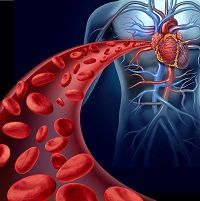Article
Type 2 Diabetes ELIXA Trial Update on CV Risk, Stroke, and Mortality
Author(s):
The much buzzed about Evaluation of Lixisenatide in Acute Coronary Syndrome (ELIXA) trial has been tracking the medication in patients with type 2 diabetes. An update on the outcomes was provided at the 10th Annual Cardiometabolic Health Congress (CMHC 2015) in Boston, Massachusetts.

The much buzzed about Evaluation of Lixisenatide in Acute Coronary Syndrome (ELIXA) trial has been tracking the medication in patients with type 2 diabetes. An update on the outcomes was provided at the 10th Annual Cardiometabolic Health Congress (CMHC 2015) in Boston, Massachusetts.
The results from the ELIXA study were first disclosed at the American Diabetes Association 75th Scientific Sessions (ADA), which also took place in Boston, earlier this year. The new data touches on hospitalization rates and how it aligns with the US Food and Administration (FDA) standards.
The patients’ initial dose of either lixisenatide or placebo was 10 µg per day, which increased to 20 µg per day. The dose could be decreased on a patient-to-patient basis if needed. Patients were on lixisenatide and the placebo for an average of 1.9 and 1.8 years, respectively.
The double-blind study’s earlier data showed that patients on lixisenatide had modestly lower HbA1c average levels (0.27%) when compared to the placebo group. The lixisenatide group exhibitied a lower fasting plasma glucose by 0.27 and systolic blood pressure by 0.8. Although the medication was able to lower HbA1c levels without harming cardiovascular health, there were no indications that it help heart health either.
Jay S. Skyler, MD, MACP, a professor of medicine and pediatrics & psychology at the University of Miami in Florida, spoke on the most recent findings from the trial during the CMHC 2015 conference.
Skyler reaffirmed that there is no increase in cardiovascular risk. The new results showed the primary outcome hazard ratio was 1.02. In addition, there were no significant outcomes when it came to cardiovascular mortality, myocardial infarction (fatal or nonfatal), and stroke. The hospitalization for heart failure hazard ratio measured in at 0.96 — which was in line with the placebo – and the medication meets FDA criteria.
When it comes to lowering glucose levels in patients with type 2 diabetes who are at risk for cardiovascular risks, the researchers have “great confidence” that lixisenatide can do this safely.
“You can never, ever really have too much safety data,” lead author of ELIXA Marc A. Pfeffer, MD, PhD, said during the ADA meeting.




